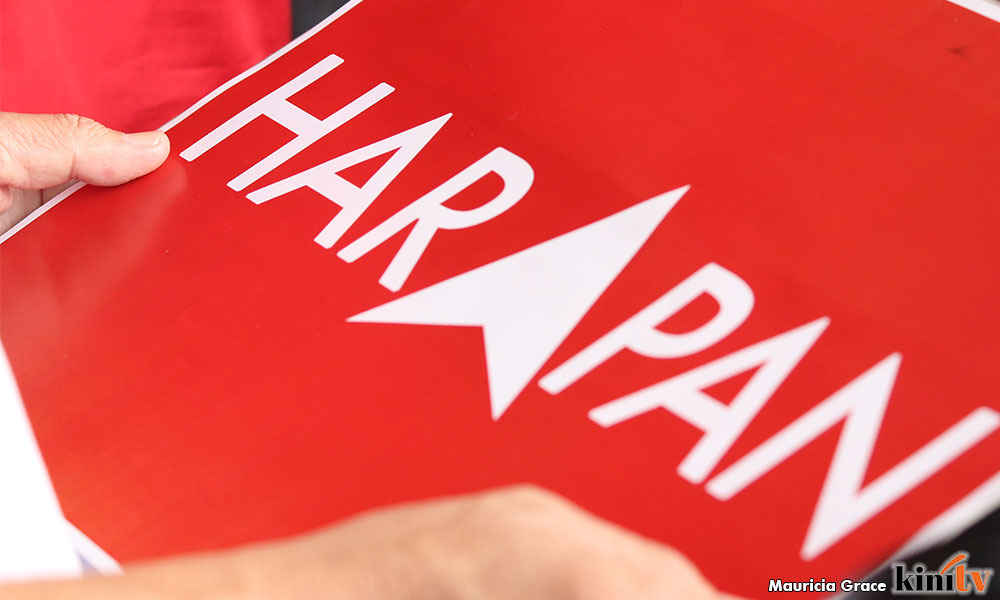At every parliamentary sitting, many would refer to Prime Minister Muhyiddin Yassin’s wafer-thin two-seat majority in mockery. He has been called the “weakest prime minister in history”, and Muhyiddin’s own insecurity does not serve as a good defence.
Most of the time, Muhyiddin would shoot himself in the foot by pulling a quick one, like attempting (unsuccessfully) to declare an emergency. Or to publicly seek appeasement from the revolting Umno class.
Muhyiddin’s inner insecurity, combined with ill-advised confidantes, has been inviting to the anti-Muhyiddin camp in Umno. They would take any opportunity they can to threaten Muhyiddin, by emphasising the looseness of the Perikatan Nasional (PN) and Umno’s non-participation, as well as inviting the defiance of party order at the parliamentary vote.
This is highly unusual in Malaysian democratic practice, and it symbolises the division and fragmentation of partisan politics.
But my claim has always been that Muhyiddin’s position is “oddly stable” against a snap election call because it is in nobody’s interest to call one now.
Pakatan Harapan cannot afford a snap election
This might seem like a red herring at first, but I must call out the elephant in the room. The entity that would pray the hardest against a snap election is actually the opposition coalition, Pakatan Harapan.
The primary reason is that it will, in all likelihood, be defeated by an all-Malay coalition of Umno-Bersatu-PAS (or any similar combination) – potentially worse than what they expect.
Polls by different outfits all point towards a comfortable majority for the Malay-based parties, and as long as they are not split three ways as they did in 2018, Harapan would stand only a minute chance of victory.

But perhaps the biggest worry is simply an electoral defeat in a snap election. It is about the narrative that comes with it.
Without a doubt, Harapan was a victim of an unholy coup that symbolises the darkest stain on our democratic history. It is a valid argument to say that they are the legitimate government, not PN.
Underlying any argument of legitimacy is a moral claim that the people’s verdict counts the most – and in this case, it favours Harapan. However, upon a snap election that will promise a defeat of Harapan, their strongest claim to power would be buried completely.
The grand oddity is that Harapan's position as a moral contrast to PN is strongest when they are not in government – and no snap election is called.
The question of collaborating with former prime minister Dr Mahathir Mohmad’s Pejuang is immaterial and insubstantial. If push comes to shove, Harapan would concede and work with Mahathir once again, but this would not substantially increase Harapan's chances of succeeding in the polls.
Bersatu and PAS: No position better than now
Perhaps no one wants to avoid a snap election more than Prime Minister Muhyiddin.
Seat negotiations did take place between Umno and Bersatu, but it is unimaginable that Umno would allow Bersatu to compete in equal or more seats than them, let alone winnable seats. And that is precisely what Muhyiddin needs to avoid being a one-term prime minister.
If a snap election is called, the lines would be drawn between Umno and Bersatu. The most likely outcome is that Bersatu competes for fewer seats, but hopes to win a comparable number of seats as Umno, and find appeasing partners within Umno to strike a similar deal.
The only difference, Muhyiddin would hope, is that Umno-Bersatu is returned a government with higher majorities.
But this is a highly speculative arrangement. The truth remains that Bersatu is an entity with unpopular and unpersuasive leaders consisting of PKR defector Azmin Ali and his treacherous lot, and they do not have a grassroots machinery that is built from genuine loyalty, fiery passion and broad-based buy-ins.

In the end, Bersatu's calculation is similar to a lesser-mentioned party of PAS: They are in the best position imaginable.
Like PAS, Bersatu knows that a snap election is a gamble with minimal upside, even if they emerge victoriously.
They simply do not have enough time and talents to offer a high number of high-quality candidates that could alter the bargaining power with other coalition partners. Most of their best men are not known in the mainstream, nor do they have a public service track record that draws attention.
Their positions were not earned through merit-based, service-based horserace; rather they were negotiated through profit-based, interest-based horsetrading.
Umno breaking the mould
The only entity that may want a snap election is Umno. Their confidence as a bloc grows by the day; even their scandal-ridden leaders are full of pomp.
Amidst the vagaries of politics, we could still say this in concert: Umno is most likely to win the election as the largest bloc, and the next prime minister would come from the party. If a snap election is held, this is the most likely outcome.
However, the condition for such an outcome is highly dependent on Umno functioning as a unit. Former prime minister Najib Abdul Razak and Umno president Ahmad Zahid Hamidi’s unit, albeit formidable, would prefer to delay a snap election until they are out of the woods with their court cases.
If both had an option to get rid of their scandals before or after a snap election, they would still rather the former, especially when a few months of delay would not affect the outcome drastically.

But that is not all. Umno is splitting into anti-Najib/Zahid camps (progressives) and anti-Bersatu camps, which may overlap on a few aspects. Nonetheless, the open division that Umno leaders portray shows us that morale and discipline may affect how the snap election may pan out if it is called. Umno would prefer to fight only when the spirits are high.
Najib/Zahid’s camp would think that, with enough time, they would be able to draw people like Umno vice-president Khaled Nordin and Umno deputy president Mohamad Hasan back to their mould.
Once again, what this means is that a delay in a snap election would conceivably increase their chances of success. That is why so many politicians would embarrass Muhyiddin’s numbers, but would not push too hard for snap polls.
The separate but unidirectional resistance against a snap election means that the centre-point that holds Muhyiddin is oddly stable. What more when there is Covid-19 that closes all likelihood of an election. Muhyiddin can hide behind public health and safety and claim that it is not him who is afraid of a snap election.
JAMES CHAI is a legal consultant and researcher working for Invoke, among others. He also blogs at jameschai.com.my. You may reach him at jameschai.mpuk@gmail.com. - Mkini
The views expressed here are those of the author/contributor and do not necessarily represent the views of MMKtT.




No comments:
Post a Comment
Note: Only a member of this blog may post a comment.